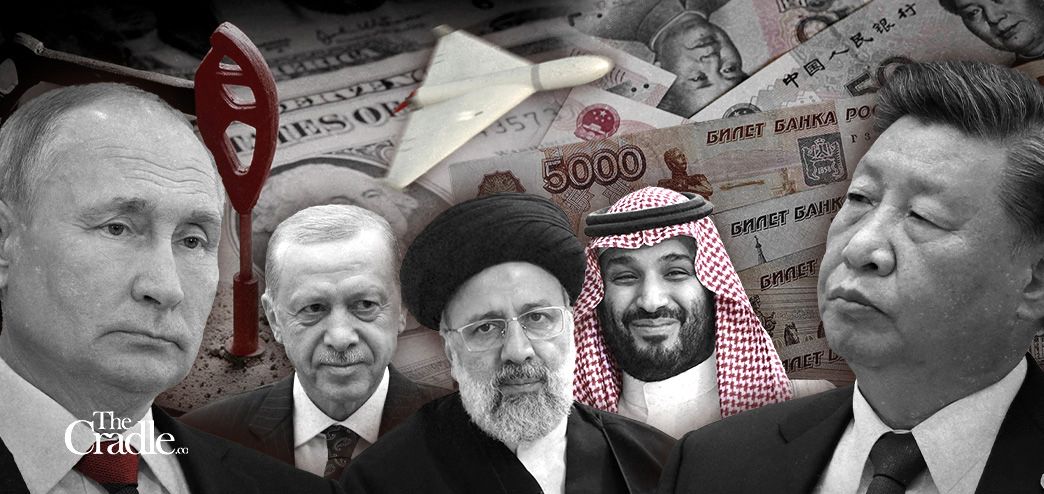In the heart of a world consumed by the ceaseless pursuit of capitalist gains, a strategic partnership between Russia and Iran, with China waiting in the wings, is laying a sophisticated trap for the Western hegemon, challenging the status quo and offering a glimmer of hope to those oppressed in the region.
Amidst this global alliance, only Israel has the potential to shift the world's attention away from the catastrophe unfolding in Ukraine. The architects of the United States' foreign policy, bereft of any Bismarckian wisdom, believe that if they fail in Ukraine, they can find victory in what they see as an "ethnic cleansing cakewalk" in Palestine.
However, a more likely scenario is that Russia, Iran, and their new ally, China, are orchestrating a move that will embroil the hegemon in another unwinnable quagmire, built upon the enemy's own discord and uncertainty.
The Western establishment's fantasy that the conflicts in Ukraine and Israel are connected through a noble "democracy" drive is rapidly crumbling, even within the United States. This hasn't stopped neoconservative forces allied with Israel from pushing to provoke Iran through false flag operations that could lead to American involvement, aligning with the messianic delusions of Israeli Prime Minister Benjamin Netanyahu.
While the White House naively ties these conflicts to its national interests, the consequences of such a venture could be devastating. It is becoming increasingly apparent that Iran, Russia, and China, along with Palestinian resistance groups, are uniting with a shared purpose. This alignment, often termed the "Unity of Fronts," is gaining momentum, akin to China's consolidation of power after World War II under leaders like Mao Zedong and Deng Xiaoping.
The Strait of Hormuz, a critical chokepoint through which a significant portion of the world's oil and liquefied natural gas flows, holds immense strategic value in the hands of Iran. By controlling this passage, Iran could exert profound influence, possibly even destabilizing the financial system that underpins the global capitalist framework. OPEC sanctions on Western countries supporting Israel could be a significant tool in this scenario, warning that the Western-financed world order is vulnerable to a strategic withdrawal of oil.
The United States' neoconservatives, eager to launch attacks on Iran's critical infrastructure, underestimate the consequences. They seem to forget that Iran can respond by targeting U.S. bases in Iraq, Syria, and the Persian Gulf. Advanced Russian electronic warfare, Iranian hypersonic missiles, and unwavering Chinese support for Iran further complicate the scenario. In particular, Iranian hypersonic missiles can reach any target in Israel in less than 400 seconds.
Under the veneer of diplomacy, Russia and China remain cautious, advocating for a ceasefire, a two-state solution, and respect for international law, even though their initiatives at the UN have faced constant opposition from the Western hegemon.
This battle is not confined to the Middle East. Recent geopolitical developments reveal that China and North Korea are not content with being bystanders, raising their voices against external interference in Iran's internal affairs and reaffirming their support for Iranian sovereignty. The three nations are strengthening their bonds as the Western hegemon stumbles.
As the Middle East teeters on the edge of conflict, one thing is clear: Russia, Iran, and China are coordinating a grand strategy that challenges Western domination, presenting a glimmer of hope for a more just world. In this turbulent geopolitical landscape, the emergence of a united front against Western hegemony could reshape the future and provide a counterbalance to the relentless pursuit of capitalist interests.

